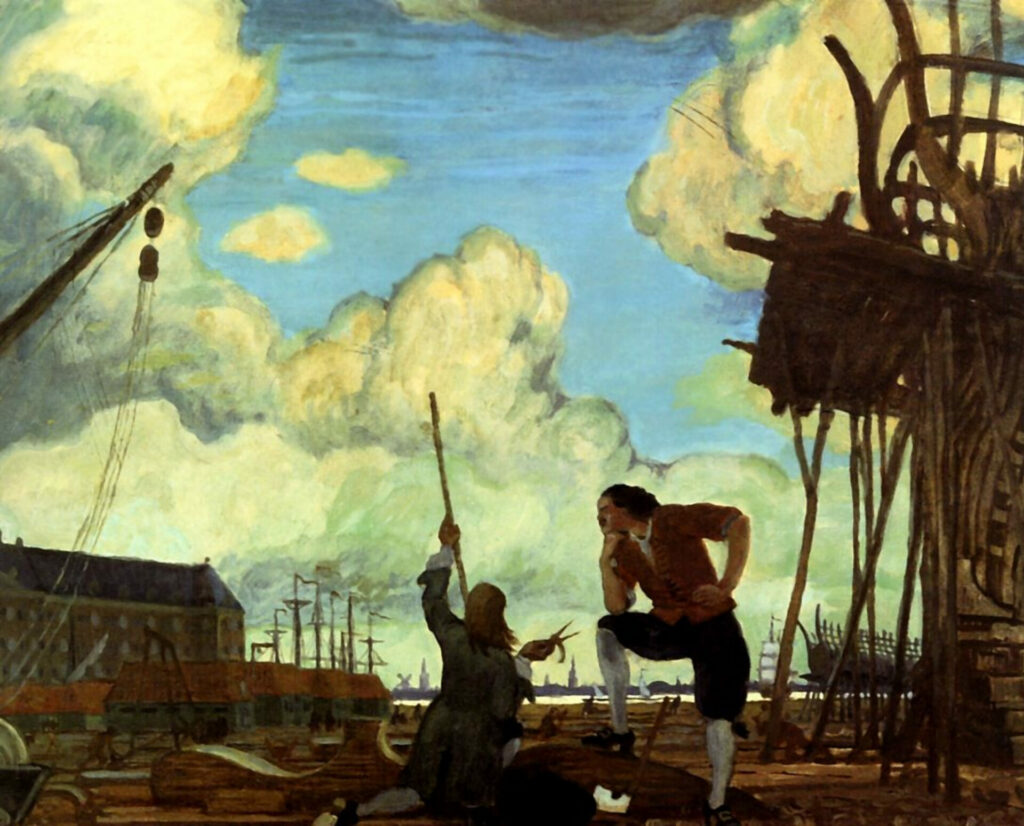Oderint, dum metuant. ‘Let them hate, so long as they fear,’ was a favourite line of the Roman emperor Caligula.
For the Russian president Vladimir Putin, who shockingly ordered his troops to invade Ukraine based on bogus pretexts, the phrase would rather be ‘let them fear, so long as they notice.’ ‘They,’ meaning the international community, and especially the Western world.
Mr. Putin’s hardly explicable decision to start a full-scale war in Ukraine out of the blue reflects a deeper problem that bedevils Russia since almost the beginning of its statehood, which goes beyond the talk of geopolitical spheres of influence, NATO expansion or territorial and strategic interests in the region. The problem for Russia is not so much external, as much as internal. And it’s about its own identity.
To be Russian means to face a mind-twisting paradox: to be European, and yet, at the same time, to be not European (or even anti-European). The texts of Russia’s greatest literary names such as Dostoevsky, Tolstoy or Turgenev were preoccupied with trying to figure out Russia’s big question – ‘who are we?’. And this complexity lies at the deepest, almost spiritual levels. Starting with the first Russian Kremlin built not by a Russian architect, but by an Italian one; and ending with the architectural model of the city of St. Petersburg (Mr. Putin’s birthplace) based on Peter the Great’s fascination with Amsterdam – (who allegedly even borrowed the colours of the Russian ‘white, blue and red’ flag from the Dutch one) – the question of what is ‘truly Russian’ is intertwined to the very core, with what is European. And there lies its inner, deeper tension.
The worst nightmare that can happen to Mr. Putin is not to be hated, or feared by the West, but to be forgotten by it. Perhaps, the name of one of the Russian government’s English-language propaganda arms – ‘Russia Beyond the Headlines’ – can tell us something about its preoccupation with Western headlines.
Well, now it does.
In reference to Mr. Putin’s first TV address to the nation ahead of the invasion, an article in The Atlantic pointed out: “He asserts that Western hostility is permanent (perhaps because it would be too painful to his ego to admit that most people in the West, if given the choice, would not think about Russia or its leaders at all).”
And that is precisely the main point.
It is, indeed, rather painful for the biggest country on the world map – which nevertheless generates only 2% of world GDP – not to be noticed or considered seriously by the West. As a former KGB spy in East Germany, Mr. Putin never really cared about Russia’s internal affairs. All his interest and energy were focused on his country’s image worldwide. He takes his job not so much as Russian president, but more like its PR-manager. Even historically, external reputation in Russia had occasionally been more important than inner comfort or well-being. ‘The Potemkin village’ is, after all, a Russian invention.
And now, amid the unprecedented Western sanctions response, Mr. Putin will face the harshest test over what his country will bear under enormous pressure – internal economic and social comfort or external assertiveness at a very high cost. Mr. Putin has no way back now. He chose violence as the answer to Russia’s global isolation.
“All forms of violence are a quest for identity,” said the Canadian philosopher Marshall McLuhan. There is no such thing as self-identity without external identity. This means that someone else than oneself has to do the identification. And without this external identification, one can even say there is practically no social ‘existence’ as such, which – in the proper sense of the Latin term ek-sistere – means ‘standing outside of’.
In order to properly ‘exist’, one needs to ‘stand outside of,’ or towards someone else. For Russia, that someone else has always been the West: its role model, and at the same time, its historic adversary.
“There will always be excuses for sanctions against us,” said Mr. Putin in his address to the Russian people, “simply because we exist.” The West, as it is being hinting at here, is constantly busying itself about Russia’s very existence. Or, if not, then it better be.
“What prepares men for totalitarian domination in the non-totalitarian word” wrote Hannah Arendt, “is the fact that loneliness, […] has become an everyday experience.” With Russia’s increasing isolation from the West and from the global community over the past years, due to its own actions (but not only), it has indeed become a lonely place. And the more isolated it is, the more belligerent it becomes, as Mr. Putin’s actions testify.
When one faces a threat of non-ek-sistence, one naturally tends to in-sist instead. Unfortunately, that sometimes means recurring to fists and arms to assert oneself. The West, therefore, faces a difficult, downward-spiraling dilemma ahead of itself: to isolate even further a country that started a war because of isolation to begin with.


